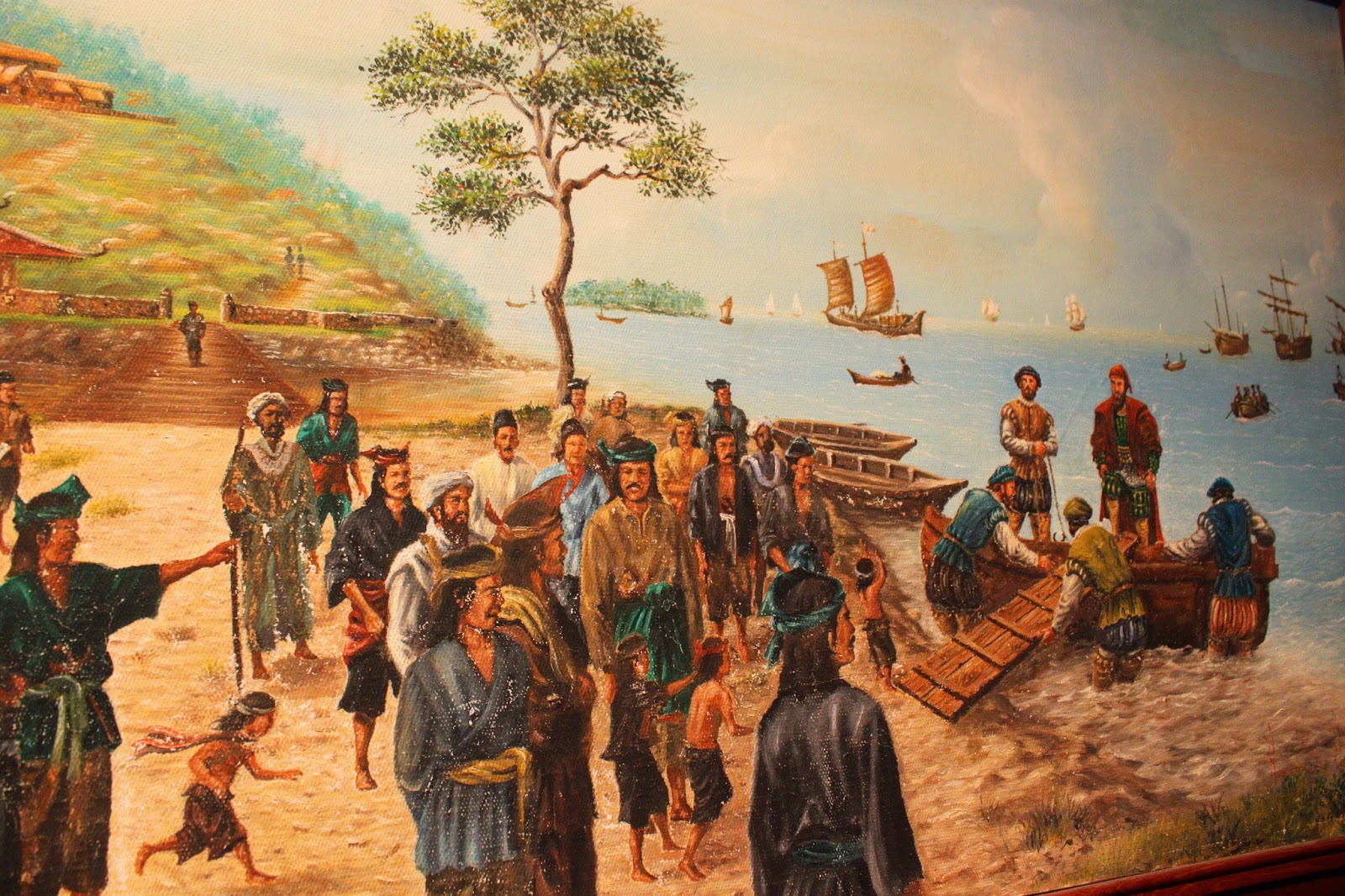The Enduring Legacy of the Malacca Sultanate

Imagine a bustling port city, a crossroads of cultures, a hub of trade connecting East and West. This was Melaka, or Malacca, during the reign of its sultanate, a period spanning from the late 14th to the early 16th century. The role of the Malacca Sultanate (peranan kesultanan melayu melaka) was pivotal in shaping the political, economic, and cultural landscape of Southeast Asia, leaving an enduring legacy that continues to resonate today.
The influence of the Malacca Sultanate extended far beyond its geographical boundaries. Its strategic location along the vital Strait of Malacca made it a central point for maritime trade, attracting merchants from across the globe. This confluence of cultures fostered a vibrant exchange of ideas, goods, and traditions, contributing to the rich tapestry of the region. The Sultanate's role in facilitating this exchange was crucial to its own prosperity and the development of the region as a whole.
The rise of the Malacca Sultanate can be traced back to the late 14th century, when Parameswara, a Sumatran prince, established the port city. Its strategic position quickly attracted traders, leading to its rapid growth as a major commercial center. The adoption of Islam by the ruling class further solidified its influence, particularly in the spread of the religion throughout the archipelago. This religious influence interwoven with the Sultanate's administrative structure became a defining characteristic of the Malay world.
Understanding the significance of the Malacca Sultanate (kepentingan peranan kesultanan melayu melaka) requires examining its multifaceted impact. It established a sophisticated system of governance and administration, which served as a model for future Malay states. The Sultanate's legal framework, based on Islamic principles and customary law (Adat), provided a structure for maintaining order and resolving disputes. Its influence on Malay language and literature is also undeniable, as Melaka became a center of learning and intellectual exchange.
One of the key aspects of the Malacca Sultanate's legacy lies in its contribution to the development of the Malay language. As a lingua franca of trade, Malay became widely spoken throughout the region, facilitating communication and fostering cultural exchange. The Sultanate's patronage of literature and the arts further enriched the language, contributing to its evolution and standardization. This linguistic influence is a testament to the Sultanate's lasting impact on the cultural identity of the Malay world.
The Malacca Sultanate's prosperity also stemmed from its robust trade network. The efficient administration of the port, including the implementation of fair trade practices and the provision of security for merchants, contributed to its reputation as a safe and reliable trading hub. This fostered economic growth not just for Melaka but for the wider region, establishing a precedent for maritime trade management in Southeast Asia. The Sultanate's maritime strength played a crucial role in maintaining its dominance in the region.
The administrative system of the Sultanate, characterized by a hierarchical structure with the Sultan at its apex, provided a stable political environment. This stability was crucial for attracting traders and fostering economic prosperity. The Sultanate’s diplomatic skills also played a vital role in maintaining peaceful relations with neighboring kingdoms, contributing to a period of relative peace and prosperity.
The cultural impact of the Sultanate is perhaps its most enduring legacy. The blending of Malay, Indian, Chinese, and Arab cultures created a unique and vibrant melting pot, shaping the identity of the region. This cultural fusion is evident in the architecture, cuisine, and artistic traditions of Melaka, which continue to bear witness to the Sultanate’s cosmopolitan past.
Advantages and Disadvantages of the Malacca Sultanate's Influence
| Advantages | Disadvantages |
|---|---|
| Establishment of a thriving trade network | Vulnerability to external threats and conquests |
| Spread of Islam and development of Malay culture | Potential for internal conflicts and power struggles |
| Development of a sophisticated administrative system | Dependence on maritime trade for economic stability |
Frequently Asked Questions about the Malacca Sultanate:
1. What was the significance of Melaka’s location? - Its strategic position on the Strait of Malacca made it a crucial trading hub.
2. What was the role of Islam in the Sultanate? - Islam became the official religion and influenced the legal and administrative systems.
3. What were the main exports of Melaka? - Spices, textiles, and other valuable goods from the East.
4. How did the Sultanate manage its trade network? - Through efficient administration, fair practices, and providing security for merchants.
5. What was the impact of the Sultanate on the Malay language? - It became the lingua franca of trade and a center of literary development.
6. Why did the Malacca Sultanate fall? - The Portuguese conquered Melaka in 1511.
7. What are the lasting legacies of the Malacca Sultanate? - Its influence on Malay culture, language, and administrative systems.
8. Where can I learn more about the Malacca Sultanate? - Visit museums in Melaka, Malaysia, or explore online resources and historical texts.
In conclusion, the role of the Malacca Sultanate (peranan kesultanan melayu melaka) was profound and far-reaching. It shaped the political, economic, and cultural landscape of Southeast Asia, leaving an enduring legacy that continues to be felt today. Its influence on trade, the spread of Islam, the development of the Malay language, and the establishment of a sophisticated administrative system are testaments to its historical significance. By understanding the achievements and challenges of the Malacca Sultanate, we gain valuable insights into the rich history and cultural heritage of Southeast Asia. Exploring the Sultanate's story offers a window into a pivotal period in the region's development, reminding us of the interconnectedness of cultures and the enduring power of historical legacies. Further research and exploration of this fascinating period are encouraged for a deeper understanding of its impact on the world we live in today. The Malacca Sultanate's story is not just a historical account; it's a vibrant tapestry woven with threads of trade, culture, religion, and political power, offering valuable lessons for the present and future.
Unlocking affordable luxury victorias secret sales
Humana gold plus hmo home health your guide to in home care
Sherwin williams caviar interior dive into the dark side of chic













